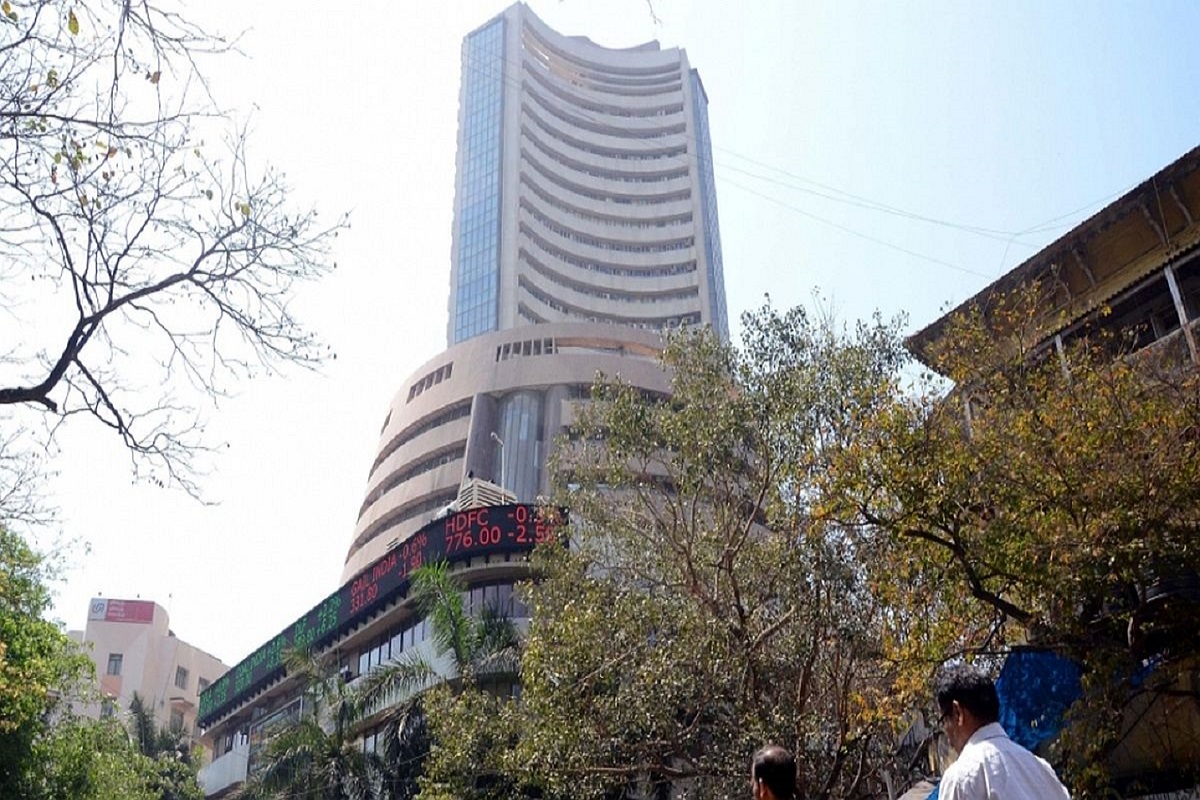FM hands over keys to homebuyers under SWAMIH Fund in Mumbai
Finance Minister Nirmala Sitharaman on Monday handed over keys to homebuyers from select projects in Mumbai Metropolitan Region (MMR).
In the Sensex pack, 22 stocks ended up and eight were down. For the Nifty, the advance-decline ratio stood at 32 versus 18.

Bombay Stock Exchange. (File Photo: IANS)
Equity benchmarks of the Bombay Stock Exchange and the National Stock Exchange opened with a strong upside bias today expecting a “wellbalanced” Budget to be presented by the finance minister, Ms Nirmala Sitharaman, on 5 July. Market participants in Dalal Street were stock-specific as it did not involve risk
The 30-share Sensitive Index of the Bombay Stock Exchange and the 50-scrip Nifty of the National Stock Exchange moved up also on account of favourable global factors such as hassle-free conclusion of G20 summit in Japan during the weekend. America and China agreeing to resume their tariff talks has been the biggest takeaway from the summit besides President Mr Donald Trump paying a surprise visit to North Korea.
Advertisement
The Sensex ended the first session of this week at 39,686.50 points, registering a gain of 291.86 points or 0.74 per cent. The Nifty settled for the day at 11,865.60 points, showing an increase of 76.75 points or 0.65 per cent. The Nifty Bank finished at 31,372.20 points, up 262.00 points or 0.85 per cent.
Advertisement
In the Sensex pack, 22 stocks ended up and eight were down. For the Nifty, the advance-decline ratio stood at 32 versus 18.
The Dalal Street gains were in line with rise in other Asian exchanges and later in the European markets. Analysts also credited today’s rise in the benchmarks to the latest PMI or purchasing managers index for June which suggested that it kept expanding for 23 months in a row.
The Nikkei PMI moderated to 52.1 in June from May’s 52.7, but since it was above the dividing line of 50 points it is taken as expansion albeit at a slower pace. According to Nikkei Markit’s economist Pollyanna de Lima, gauges of factory orders, production, employment and exports remained inside growth territory but rates of expansion softened in all cases as domestic and international demand slowed.
PMI moderated largely owing to softer increase in new works and in turn translated into slower rises in output and employment. PMI for all important services sector will be released on 4 July, she said.
Stock markets are, however, remained focused on Budget presentations. A poll by business channel suggested that a majority felt the minister would keep fiscal deficit target at 3.4 per cent of the GDP for the complete year as was mentioned in the interim Budget passed by Parliament before the general elections.
In two months after interim Budget, the fiscal deficit stands at Rs 3.66 lakh crore which is 52 per cent of the year’s deficit of Rs 7.04 lakh crore. Mr VK Sharma of HDFC Securities said: “We believe the government will be able to keep the fiscal deficit target at 3.4 per cent of GDP. It would have been unimaginable in our economy that has slowed for the past three quarters. But it would be possible because of two reasons ~ large inflows the Reserve Bank of India getting as dividend and strategic sales of PSUs (public sector undertakings).”
Brokerages are keen on the repeal of long-term capital gains tax on securities transactions worth Rs 1 lakh and more. Although it is quite meagre, analysts feel, its removal would boost inflows into equity markets, particularly from foreign portfolio investors or FPIs and domestic mutual funds that channelise retail stock investors money
Advertisement